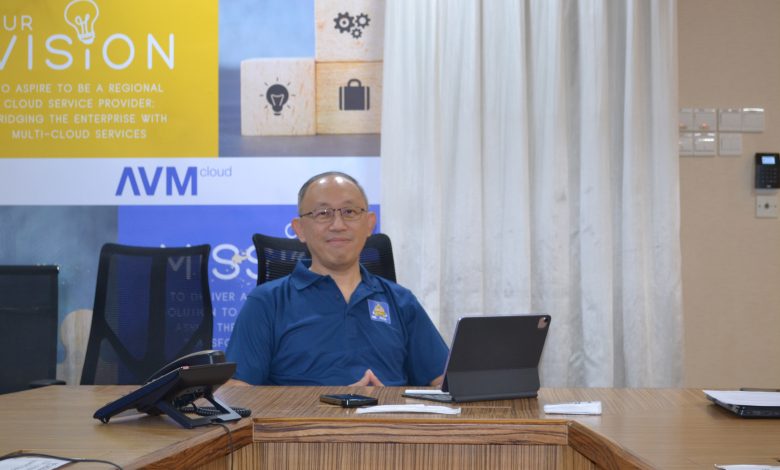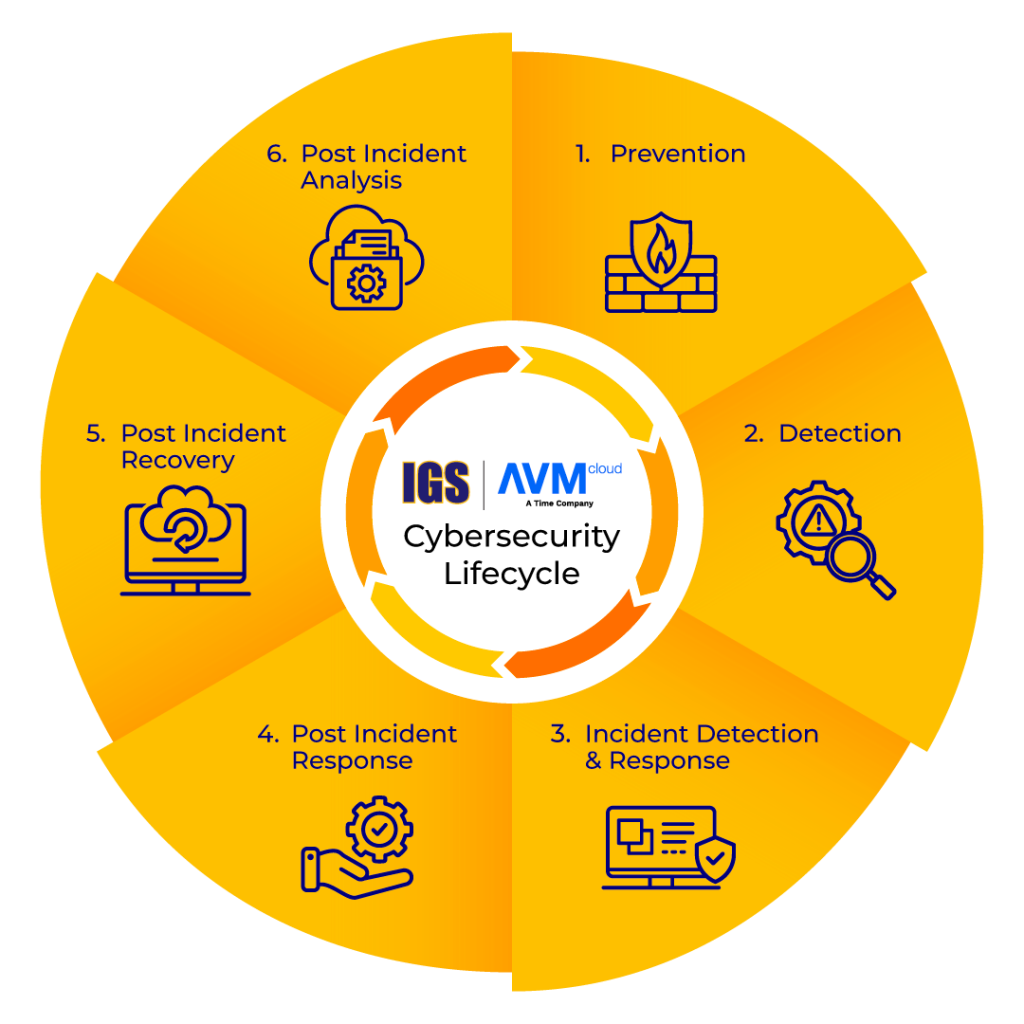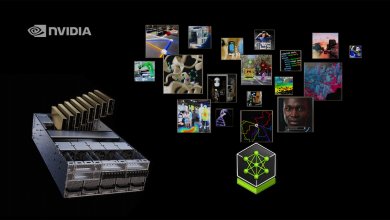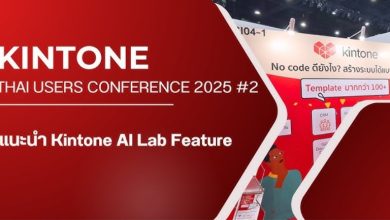Charting 2025: What to Expect from IGS Amidst the Private Cloud Renaissance
IGS Charts 2025 Objectives by Enabling AI and Sovereignty Through Private Cloud Innovation

In 2025, Integrated Global Solutions (IGS) Sdn Bhd, a subsidiary of AVM Cloud, which operates under the ownership of Time dotCom Berhad, is determined to solidify its position as a one-stop player in Malaysia’s IT landscape. By focusing on private cloud adoption, data sovereignty, and enabling enterprises through VMware Cloud Foundation, IGS is shaping solutions to address the challenges of today while anticipating tomorrow’s demands.
To further clarify their objectives, we interviewed Kenny Lim, CEO of AVM Group, which comprises AVM Cloud and its subsidiary, IGS, who shared his insights on how private clouds are addressing these challenges and what lies ahead for Malaysian enterprises navigating this shift.
Embracing the Private Cloud Resurgence
A recent IDC survey found that over 80% of respondents anticipated some level of data repatriation within the next year, and this trend is likely mirrored in Malaysia, where companies are rethinking public cloud strategies in favour of greater control, compliance, and cost predictability.
The key question is, how can organisations effectively navigate the transition to private cloud?
Solutions like VMware Cloud Foundation (VCF) facilitate this balance by providing a consistent operating model across public and private clouds. Kenny elaborates, “Broadcom’s VMware is taking steps to tackle these challenges,” he said. “One of the exciting concepts we’re introducing is VMware Cloud Foundation (VCF). It represents a new approach to private cloud that mirrors the agility and ease of use associated with hyperscalers like Amazon. With VCF, enterprises can provision resources, deploy services like databases or marketplaces, and manage short-term workloads all within their own infrastructure. It’s all scriptable, manageable as code, and entirely within their own perimeter.”
He further added that private cloud goes beyond the old conception of virtualisation layers. “The modern private cloud is no longer just about storage, virtualisation, or running basic workloads. It’s about seamlessly integrating features like containerisation and enabling agile development on your own premises or hosted premises,” Kenny explained. “This allows developers and users to interact with private clouds just as seamlessly as they would with a hyperscaler.”
Let’s make a scenario-based instance; a global retailer preparing for high-traffic events like Black Friday could leverage public cloud resources to handle sudden spikes in demand. After the event, workloads could be repatriated to private clouds, reducing costs and ensuring compliance with local data regulations. VCF simplifies this process by automating resource allocation and streamlining operations across hybrid environments.
Moreover, VCF supports containerised workloads through tools like VMware Tanzu, enabling businesses to deploy modern applications alongside traditional ones. This flexibility is critical for enterprises adopting microservices architectures or AI-driven innovations. By automating resource provisioning and integrating management tools, businesses can reduce operational overhead and focus on delivering value to their customers.
The rise of generative AI, powering everything from predictive analytics to real-time decision-making, and advanced workloads has accelerated the need for private cloud adoption.
Kenny explained that private AI, integrated with private cloud infrastructure, addresses the three key concerns: cost, complexity, and compliance. “With your own trained models and secure enterprise data, you gain seamless integration with your existing architecture while maintaining complete control over your data,” he said. “This approach ensures your enterprise AI is scalable within your own private cloud while allowing hybrid cloud options for overflow workloads.”
IGS’ long-standing partnership with VMware gives the company a distinct advantage in terms of expertise and experience in helping businesses tackle their challenges. In fact, IGS is a Premier VMware by Broadcom partner, recently becoming the first in Malaysia—and one of only four globally—to be certified for the VMware by Broadcom License Portability.
Proactive Security for Growing Clouds
The proliferation of cloud environments may be a boon for businesses, but it also brings with it the growing challenge of cybersecurity threats. Statista reports that 38% of all cyber-attacks in 2024 targeted cloud infrastructures, highlighting the urgent need for robust security measures.
Passive security strategies are no longer sufficient. Private cloud and cybersecurity services have become the new formula for protecting enterprises’ critical infrastructure. Regardless of whether an organisation leans toward public or private cloud, it’s important to partner with cloud providers who possess the right capabilities, expertise, experience, and a strong focus on security.
Kenny shared how AVM Group integrates security within their services. “Cloud and cybersecurity go hand in hand, especially when they are integrated within the same ecosystem. It’s our responsibility to ensure that cybersecurity threats don’t penetrate our cloud space. Over the years, we’ve learned how cybersecurity intertwines with cloud offerings to create a robust, secure infrastructure,” he said.
In this context, IGS is an example of a system integrator that has deep expertise across the entire cybersecurity lifecycle—from prevention and detection to response, post-incident recovery, and analysis. This level of depth is essential for organisations looking to manage the complexity of securing their growing IT environments.
Kenny took note of the challenges faced by the enterprises when it comes to integrating the cloud services, emphasising towards the small-to-medium-sized ones. “IT professionals are often overwhelmed,” he said. “They’re managing so many demands—AI strategies, hybrid cloud setups, SaaS applications, ERP systems—and they’re expected to do all this with limited resources and expertise.”
With such observation, Kenny explained how IGS addressed these challenges by implementing a cybersecurity lifecycle, which includes “includes prevention, detection, and incident response, all the way to disaster recovery”. “By preventing incidents upfront and having a clear plan for detection and recovery, enterprises can operate worry-free,” Kenny proclaimed.

Why Data Sovereignty Is The Next Security Imperative
As digital transformation accelerates and security becomes imperative for all industries, the issue of data sovereignty will take centre stage. Organisations looking to maximise their security should consider the sovereign cloud option. This approach ensures that data remains within specific borders—be it to comply with local laws, mitigate geopolitical risks, or simply maintain tighter control over sensitive information.
“Sovereign cloud is about maintaining control over data that’s critical to an enterprise or even an entire nation,” Kenny noted. “This is particularly important for businesses handling national critical infrastructure or operating in sensitive industries like FSIs.”
As a Certified VMware Sovereign Cloud Provider, AVM Group is also well-positioned to meet the rising demand for sovereign cloud solutions in Malaysia.
It’s important to understand that data sovereignty goes beyond the commonly understood concept of data residency. While data residency focuses primarily on where data is stored—often simply concerned with the physical location of servers—data sovereignty encompasses broader principles. Three critical criteria come into play:
- Place (the physical location of data)
- Origin (the jurisdiction or laws that govern the data)
- People (who owns, manages, and has access to the data).
Kenny believes that by ensuring the resources are held within our national borders, our chances in countering or even preventing foreign attacks will be more likely secured. “A sovereign cloud is operated within national borders, controlled by local entities, and ensures that critical operations aren’t dependent on foreign providers,” Kenny noted. “If tensions escalate or industries come under attack, the sovereign cloud ensures you’re not held ransom by a foreign cloud provider. It’s about protecting sensitive data and ensuring it stays within the nation’s control.”
Therefore, achieving data sovereignty means not just knowing where your data resides, but also ensuring that it’s subject to the right legal frameworks, and managed by local, trusted entities, and this is something only a sovereign cloud can provide.
The 3Cs: Connectivity, Cybersecurity and Cloud
As Malaysia accelerates its digitalisation journey, the cloud will prove to be a key enabler, bridging the gaps between legacy systems and modern technologies while driving the rise of data-driven decision-making and AI-powered solutions.
Kenny envisions IGS playing a pivotal role in bringing this vision to life.
Whether migrating to the public cloud, repatriating to a private cloud, or navigating the complexities in between, IGS, in collaboration with AVM Cloud and Time dotCom Berhad, is helping organisations tackle their challenges head on with its end-to-end solutions.
In fact, Kenny shares that the three companies work very closely to continuously elevate their services through a strategic focus on the 3C pillars: Connectivity, Cybersecurity, and Cloud. In his view, Time dotCom Berhad is at the heart of the 3C strategy as it provides the “Connectivity” backbone that drives IGS’s innovative solutions and AVM Cloud’s robust cloud services.
“As a leading telecommunications provider in Malaysia, Time dotCom Berhad ensures high-speed, reliable, and secure network infrastructure, enabling seamless communication between private, hybrid, and public cloud environments. This robust connectivity supports enterprises in handling data-intensive operations and integrating edge computing, ensuring real-time responsiveness for AI and IoT workloads,” Kenny elaborates.
Hence, what truly sets IGS apart as a system integrator is its ability to deliver the best of three worlds—the cloud expertise of AVM Cloud, the connectivity power of Time and the cybersecurity excellence of IGS—into a full-fledge solution with top-of-the-line protection for customers.
From a secure cloud perspective, which is becoming a necessity for many organisations today, he explains: “All three elements—cloud, connectivity and cybersecurity—are essential for running our clouds securely, whether it’s the private cloud we build for you or our sovereign cloud. These elements are digitally intertwined, with connectivity at their core. They play a critical role in managing the complexity of private or sovereign clouds. They also address external threats, including cybersecurity risks, which are always a primary concern.”
A Future-Ready Vision
Looking ahead, IGS’ direction for 2025 is clear – to remain a trusted partner in enabling enterprises to navigate the complexities of modern IT. The company’s emphasis on private cloud adoption, data sovereignty, and enterprise solutions positions it as a major contributor to Malaysia’s IT ecosystem growth.
Kenny shared some parting advice for enterprises in 2025. “The first step is to take a step back and think about your modern cloud infrastructure—or rather, your modern cloud architecture—that can accommodate your future plans. AI is going to extend to the edge, and that will become a critical part of your architecture. You’ll need to build this edge, integrate it with your private cloud, and possibly stitch it to a sovereign cloud.”
In addition to addressing current demands, IGS is prepared to tackle emerging trends. The rise of artificial intelligence (AI), the push for edge computing, and the growing need for resilient IT infrastructure will require solutions that are both innovative and practical. IGS is looking at a promising future with their strong foundation in VMware technologies and commitment to measurable outcomes.




